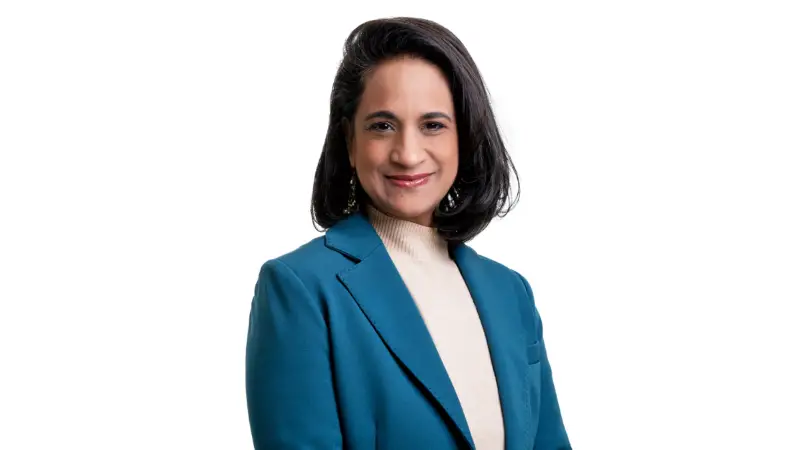Click here to get this post in PDF
Image source: Dr. Mona Jhaveri
According to Dr. Mona Jhaveri, founder of the nonprofit cancer organization and crowdfunding platform Music Beats Cancer, crowdfunding has evolved a great deal over the past 10 years. Importantly, promising startups in the biotech sector may now be poised to start leveraging a new method of financing called equity crowdfunding.
“Our organization has long used crowdfunding for charitable purposes, but now it’s time for the biotech industry to explore equity crowdfunding,” Dr. Jhaveri says. “This could be a way to open the floodgates to whole new revenue streams.”
Music Beats Cancer: Crowdfunding Pioneer
A pioneer in the crowdfunding field, Music Beats Cancer raises funds for biotech startups that work to bring cancer-fighting treatments and technologies to market. For instance, current projects include a way to make tumors better targets for cancer therapy, a pill to boost brain cancer treatment, and a new method to direct chemotherapy only to the body areas that need it.
“We help bridge the gap between incredible scientific insights and the fully realized treatments patients need,” Dr. Jhaveri explains. “When ideas are never turned into effective products, their potential is forfeited, and the world never benefits from them.”
Music Beats Cancer’s crowdfunding campaigns work by holding events, such as tribute concerts for artists who have passed away from cancer, like Bob Marley and David Bowie. The charity also hosts challenges where musicians and bands compete to raise money for cancer-fighting research and development. The performers who raise the most win prizes, such as a spot on iHeart Radio or the Jingle Ball JumboTron. The funds are then distributed to biotech startups.
“We’re different from other charities because we support the development of new solutions to a systemic breakdown,” Dr. Jhaveri explains. “The truth is that many promising cancer-fighting innovations never get the chance to reach the patients who need them because they run out of money. It’s a tragedy.”
Music Beats Cancer funnels desperately needed funds for biotech startups to keep their labs open. This expands the possibilities for a scientific breakthrough in the realm of cancer research.
“It’s about making cancer more manageable and finding ways to eliminate it long into the future,” Dr. Jhaveri says. “If you think of cancer like a flood, biotech startups are the ones swimming upstream to find its cause and stop it.”
According to Dr. Jhaveri, an exciting new approach to crowdfunding, called “equity crowdfunding,” promises to open up a new avenue for financing the biotech industry.
Equity crowdfunding for the biotech industry
Equity crowdfunding is a means of raising capital by offering an equity share of a business in return for investment. A common example is Real Estate Investment Trusts, in which groups of investors band together to make real estate purchases.
“It’s rare for startups to successfully attract angel investors or venture capital,” Dr. Jhaveri explains. “Unfortunately, the same goes for startups in the biotech space, which is why our sector needs to start exploring these alternative avenues to fundraising.”
Equity crowdfunding leverages the collective power of many small, non-accredited investors rather than relying on a few wealthy individuals. “Basically, it’s a way of allowing all kinds of people to profit from the kinds of investments that only accredited investors have traditionally had access to,” Dr. Jhaveri explains. “It’s a way of democratizing ownership in promising biotech companies.”
At the same time, equity crowdfunding gives cancer-fighting efforts the infusion of capital they need. “Due to changes the SEC has made, a small company can now raise millions of dollars from thousands of ordinary investors,” Dr. Jhaveri says. “It doesn’t matter if the money comes from five people or 5,000.”
How Donor-Advised Funds can fuel the biotech industry
Image source: Depositphotos.com
According to Dr. Jhaveri, Donor-Advised Funds (DAFs) present another exciting new financial pathway for biotech startups. “DAFs represent a source of untapped funds that could be used to address society’s most pressing issues, like cancer,” she says. “DAFs could help bridge the valley of death by investing in or donating to risky start-ups working on promising biotechnologies. If its owners are proactive in donating, investing, or loaning the funds, DAFs could become a game-changing instrument.”
“The growth of those investments never returns to the donor,” Dr. Jhaveri explains. “They stay in the DAF account and can be used for future donations or investments. Inevitably, most DAF accounts are held at large financial institutions like Fidelity, Charles Schwab, or Vanguard, which don’t allow DAF holders to invest in risky start-ups; hence independent community organizations have formed to house DAF accounts for donors wishing to invest in or gift to special interest projects that DAF owners care about.”
Bring cancer-fighting solutions to fruition
Music Beats Cancer is doing creative financing in an industry that is a newcomer to crowdfunding.
“This is an exciting space,” Dr. Jhaveri says. “We’re talking to many folks who want us to do all kinds of things: big pharma, cancer centers, individuals and groups working with DAFs.”
Contributions to Music Beats Cancer — whether through its events, challenges, campaigns, or up-and-coming new possibilities like equity crowdfunding and DAFs — enable people to make a real difference in the world and perhaps even secure their legacy.
“Many people have fought cancer or love someone who has,” Dr. Jhaveri says. “Music Beats Cancer enables you to be on the ground with exciting new cancer-fighting science and help bring it to the world.”
You may also like:
Biostate AI unlocks molecular doors to global health with alliances from Boston to Bengaluru
Why is it important for a Non-profit organization to collect payments online?


